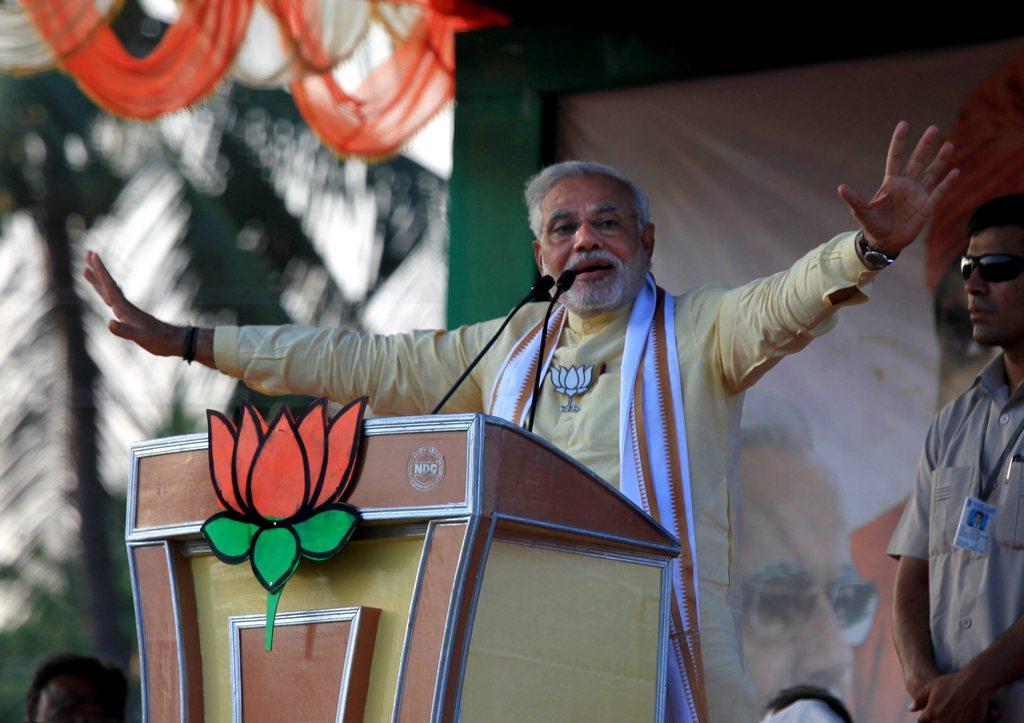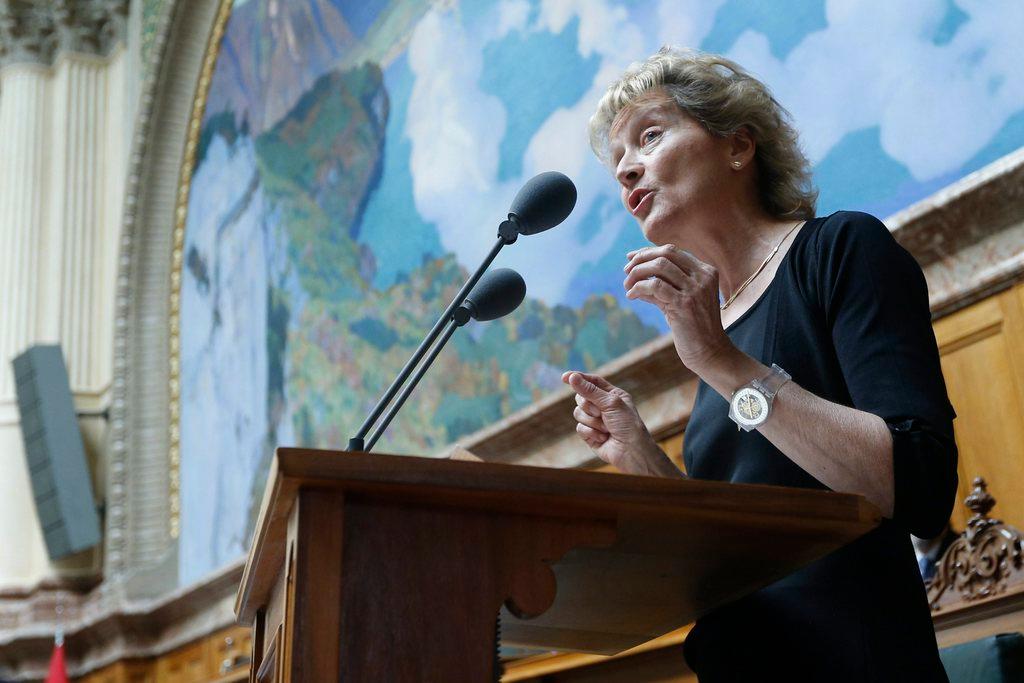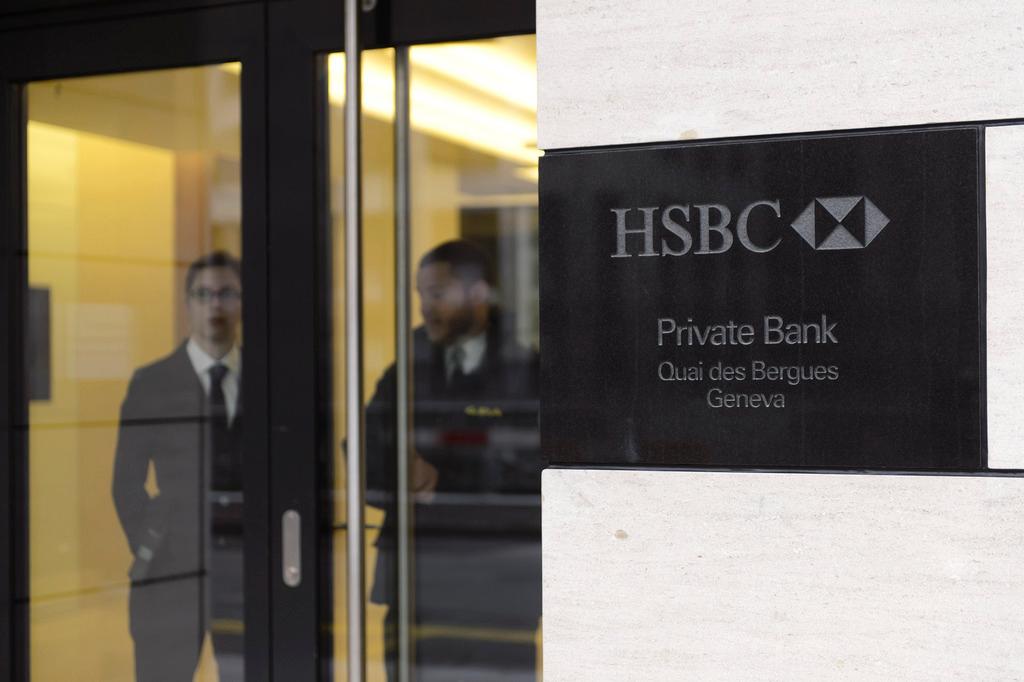No deals on black money during Modi’s Swiss visit

The Indian Prime Minister Narendra Modi, will be visiting Switzerland on June 6. His trip comes when Switzerland is under great pressure to share banking information, but a deal on sharing data with India will probably have to wait.
Even before being elected prime minister in 2014, Modi saw the political potential in raising the issue of untaxed income stashed abroad by Indians. Barely three months after joining Twitter he initiated a nationwide poll on bringing back black money (untaxed assets) from Switzerland.
Vote for Bringing Back Indian Black Money Deposited in Swiss Bank. Participate in the Nationwide Poll Campaign at www.narendramodi.in/polls
— Narendra Modi (@narendramodi) April 11, 2009External link
Bringing back black money squirreled away in Swiss banks by Indian tax dodgers, was one of the pillars of his election campaign in 2014. He utilised it with great effect to discredit the ruling Congress party and raise hopes of achieving what others had failed.
Why is Cong hesitant to bring back black money? Because they know who it belongs to…NDA will bring back every Paisa that is stashed abroad
— Narendra Modi (@narendramodi) March 30, 2014External link
However, Swiss banking secrecy and limitations of bilateral treaties have frustrated his government’s efforts in delivering the promises. Questions are being raised about his government’s commitment to punish financial wrongdoers. Therefore Modi is under significant pressure to show something for his Swiss stopover. However, this is unlikely to happen.
“We have not been informed that any agreement will be signed,” a spokesperson for the State Secretariat for International Financial Matters told swissinfo.ch.
India’s strong hand
India has been looking into 782 names taken from a list of HSBC bank clients given to foreign authorities by former employee, Hervé Falciani, who worked at the bank’s Geneva branch. Despite pressure from India, Switzerland had refused to compromise on its stance of rejecting requests for banking information that are based on stolen bank data.
But Switzerland has shown signs of being willing to bend the rules a bit to appease India. In October 2015, it reached an agreement with India to “examine requests for which investigations have been carried out independently from what the Swiss government considers as data obtained in breach of Swiss law.”
The change in the Swiss stance towards Indian HSBC clients comes at a time when it is under intense OECD scrutiny to respond to requests for information. In March 2015, Switzerland was upgraded to Phase 2 of the Organisation for Economic Cooperation and Development’s (OECD) tax transparency review process, thanks to its efforts in complying with international tax data sharing standards. Achieving this Global StandardExternal link of tax compliance will help Switzerland be seen as taking money laundering and corruption seriously and cement its position as a safe place to do business.
It now faces the challenging task of scraping through Phase 2, where it will assessed on its ability and willingness to respond to requests for tax information from other countries. Beginning the latter half of this year, a Peer Review Group (PRG) comprising 30 countries will evaluate Switzerland’s performance over several months. India happens to be one of four vice-chairsExternal link of the PRG and will likely wield considerable influence, especially when it comes to the issue of stolen data.
“It is enough for two objections for Switzerland to stumble and India has a very uncompromising stance,” said Jacques de Watteville, chief of the State Secretariat for Financial Affairs in an interviewExternal link published in the Le Temps paper in 2015.
Refusal to entertain any information requests from India, even when they are based on stolen data, could potentially cost the Swiss their chance to clear Phase 2 and meet the OECD’s global standard on tackling tax evasion. Its neighbour Luxembourg failed its Phase 2 assessment in 2013 and one of the reasons given was its refusal to exchange information in cases where stolen data was involved.
Thus the Swiss are hoping to appease India by revealing the identities and bank details of certain Indian HSBC clients where the Indian authorities have been able to provide other evidence in addition to the stolen HSBC data. A compromise of this kind would mean that Switzerland is not harangued by India over stolen data during its critical Phase 2 assessment.
It is also in India’s best interest to have the Swiss as signed up members of the automatic exchange of information treaty as soon as possible. This would discourage Indians stashing undeclared funds in Switzerland in the future.
The big prize
In December 2015, the Swiss parliament approved the AIE treaty that the country had signed up to earlier. The green light for the agreement means that Switzerland will have to commit to an annual exchange of all financial information automatically on a reciprocal basis with all other participating countries. The first exchange of information is expected to take place in 2018.
However, the Swiss parliament will have to approve information sharing under this AIE treaty with each country on an individual basis. So far, Switzerland has signed agreements with the EU and nine other countries, with parliament approving two of the deals – the European Union and Australia. India is not yet one of themExternal link.
Modi, will no doubt be hoping to get India into this list as soon as possible. But this is a time-consuming process as each country deal has to be approved by both houses of the Swiss parliament. It is unlikely that any deal will be inked during this visit.
But India’s involvement on the PRG, will probably ensure that it is high up on the waiting list. For now, it is likely that Modi must content himself with a view of the Swiss Alps.

In compliance with the JTI standards
More: SWI swissinfo.ch certified by the Journalism Trust Initiative





You can find an overview of ongoing debates with our journalists here . Please join us!
If you want to start a conversation about a topic raised in this article or want to report factual errors, email us at english@swissinfo.ch.